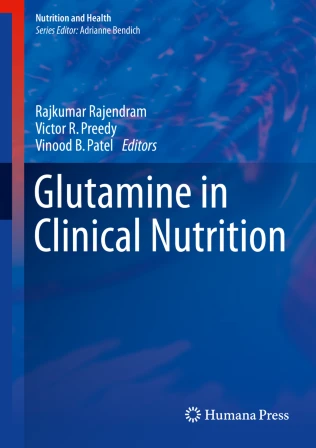The Health Benefits of L-Glutamine: A Key to Cellular Vitality and Glutathione Production
L-Glutamine is one of the most abundant amino acids in the human body, playing a vital role in maintaining cellular health, supporting the immune system, and promoting digestive wellness. Though it is classified as a “conditionally essential” amino acid — meaning the body can produce it under normal circumstances — stress, illness, or intense physical exertion can deplete glutamine levels faster than the body can replenish them. In such cases, supplementation may offer significant benefits.
1. The Link Between L-Glutamine and Glutathione
One of the most remarkable aspects of L-Glutamine is its role as a building block for glutathione, the body’s master antioxidant. Glutathione is composed of three amino acids: glutamine, cysteine, and glycine. It acts as the body’s frontline defense against oxidative stress, neutralizing harmful free radicals and detoxifying the liver.
Without sufficient glutamine, the synthesis of glutathione can slow down, reducing the body’s ability to repair damaged cells and fight inflammation. This is why maintaining optimal glutamine levels is essential for sustaining youthful energy and protecting against chronic diseases linked to oxidative damage.
2. Supports Digestive and Gut Health
The lining of the intestines relies heavily on L-Glutamine for repair and maintenance. It serves as the primary fuel source for enterocytes — the cells that form the intestinal wall. When these cells are healthy, they prevent harmful toxins and bacteria from leaking into the bloodstream, a condition often referred to as “leaky gut.”
For individuals suffering from digestive disorders such as irritable bowel syndrome (IBS) or inflammatory bowel disease (IBD), L-Glutamine supplementation may help repair the gut lining and restore normal function. Even for healthy individuals, it supports optimal nutrient absorption and overall digestive efficiency.
3. Boosts Immune Function
The immune system is another major consumer of glutamine. During illness or physical stress, immune cells like lymphocytes and macrophages require extra glutamine to multiply and respond to infections. Low glutamine levels have been associated with weakened immune responses and slower recovery rates.
By ensuring an adequate supply of glutamine, the body can maintain stronger immune defenses — a benefit especially important for those recovering from surgery, infection, or chronic stress.
4. Promotes Muscle Recovery and Reduces Fatigue
Athletes and active individuals often experience glutamine depletion after intense workouts. Supplementing L-Glutamine can accelerate muscle recovery, reduce post-exercise soreness, and prevent muscle breakdown (catabolism). It helps restore glycogen levels, allowing the muscles to recover faster and perform better during subsequent training sessions.
5. Mental Clarity and Stress Support
The brain uses glutamine to produce two important neurotransmitters: glutamate and GABA (gamma-aminobutyric acid). These chemicals help regulate mood, focus, and stress response. Proper glutamine levels support balanced mental energy, reducing anxiety and improving cognitive performance.
For individuals under chronic stress, glutamine may indirectly support the adrenal glands and help stabilize mood swings or fatigue caused by excessive cortisol production.
6. Importance for Vegetarians
Vegetarians often have lower dietary intake of certain amino acids found abundantly in animal protein. Since glutamine plays a central role in protein metabolism and tissue repair, supplementation can help bridge that gap. Moreover, because vegetarians may sometimes have lower cysteine and glycine intake — both required for glutathione synthesis — maintaining optimal glutamine levels becomes even more crucial for supporting natural antioxidant production.
7. Detoxification and Liver Health
L-Glutamine also contributes to the detoxification process in the liver. By enhancing glutathione production, it supports the liver’s ability to neutralize and eliminate toxins, alcohol residues, and metabolic waste. This function is vital for maintaining overall vitality, especially in urban environments where exposure to pollutants and chemicals is unavoidable.
Conclusion
L-Glutamine is far more than just another amino acid supplement. It serves as a cornerstone of cellular repair, immune defense, gut integrity, and antioxidant protection. By promoting glutathione production — the body’s master antioxidant — glutamine helps slow the aging process and strengthen resistance against oxidative stress.
For vegetarians, athletes, or anyone facing chronic fatigue, digestive discomfort, or immune weakness, L-Glutamine supplementation can be a simple yet powerful way to restore balance and vitality. As with all supplements, it’s wise to consult a healthcare professional before beginning, especially for those with medical conditions or on medication.
Related articles:
1. The Importance of Gut Bacteria to Overall Health
2. The Secret of Burdock Root: A Natural Detoxifier and Longevity Food
3. The Budwig Diet: Origins, Scientific Basis, and Clinical Evidence
4. Moringa Leaves: The “Super food” Gift from Nature, Unlocking a New Secret Code to Health
5. Foods and nutritional supplements to prevent high blood pressure, cholesterol, and blood sugar

